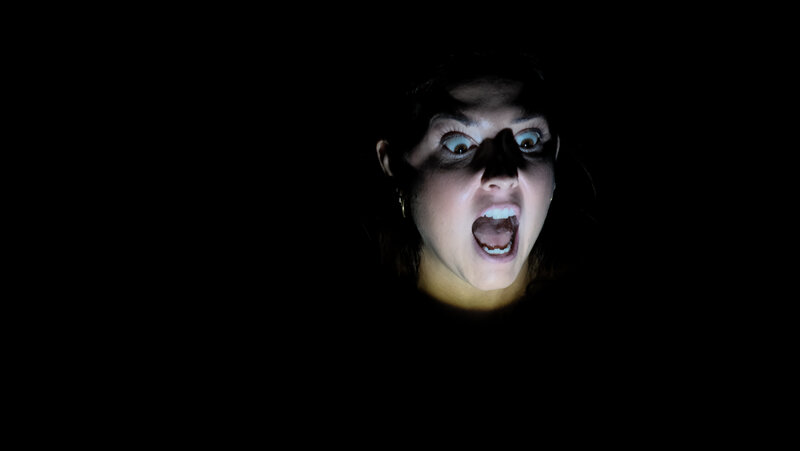Five young women at the pearly gates, or are they at the gates of hell? Taken far too young, they are called upon – one by one – to enunciate their deepest, darkest sins to determine just where they will end up. And make no mistake, judgment will be passed. Unfolding as five monologues, with the occasional input from “the overseer” (is that the Grim Reaper?), The Waiting Room exposes truths, failures and vulnerabilities. It has been well written by a combination of four of six performers and Tuia Suter, the latter of whom was also responsible for dramaturgy.

Each of the actors deliver confident and strong performances, which showcase the different personality traits of their characters. The simplest to describe is the entity that listens and prods. In that role, Rory Harman won’t let the women off lightly. They are required to give of themselves … to peel back the layers. Each dressed in black, the women imbue their personas with humour and pathos, as they present pictures of their lives that aren’t pretty. Inevitably, they are uncertain about what is expected of them in the situation they are in and how what they say is going to go down.

Never finding a partner, while her friends coupled up and had kids, Elyse Batson paints her character as unloved, disappointed, alone and depressed. Roxy (Delaram Ahmadi) is the middle of five children in her family. She puts much of her bad behaviour down to her star sign, Scorpio. She exposes major shortcomings at home, at school and at work. Notwithstanding the sass in her characterisation, slowing down her delivery would have been beneficial.

As Harri, Amelia Dunn has cue cards at the ready and starts with a series of minor indiscretions, ending with an embarrassing and traumatising dating incident. After blaspheming, Louisa (Fiona Crombie) outlines the close bond with her younger sister and what transpired after their mother died (when they were still just children). Maggie (Laura Knaggs) spins a wild yarn involving a funeral at a Toorak mansion and her husband of six years, who was an ugly crier, but watch for a sting in the tail.

As I reflected on what I had just seen and appreciated, the following thought came into my mind. Should the person sitting in judgment have been there at all? I didn’t miss him when he didn’t appear in the first vignette, although he is present in all subsequent scenes. Alternatively, if he remains a tangible presence, does he need to utter a word, because surely there is enough in what the women are saying? Or, perhaps, he could simply have articulated a single “pithy” word at the end.

Regardless, The Waiting Room has strong appeal as it is. The anecdotes are powerful and alluring. It prompted me to reflect on a quote from 19th century Russian novelist Leo Tolstoy: “To sin is a human business, but to justify sins is a devilish business.” I also couldn’t but help turn to a truism with Biblical origins, namely “Let him who is without sin, cast the first stone.” With sound design by Aiden Fyfield, director Ellen O’Connor guides the ensemble on an emotional rollercoaster and ensures there is never a dull moment.
Fifty-five minutes, The Waiting Room is playing at The Butterfly Club until 11th November, 2023.
Alex First

Alex First is the editor of The Blurb. Alex is a Melbourne based journalist and communications specialist. He also contributes to The Blurb on film and theatre.





